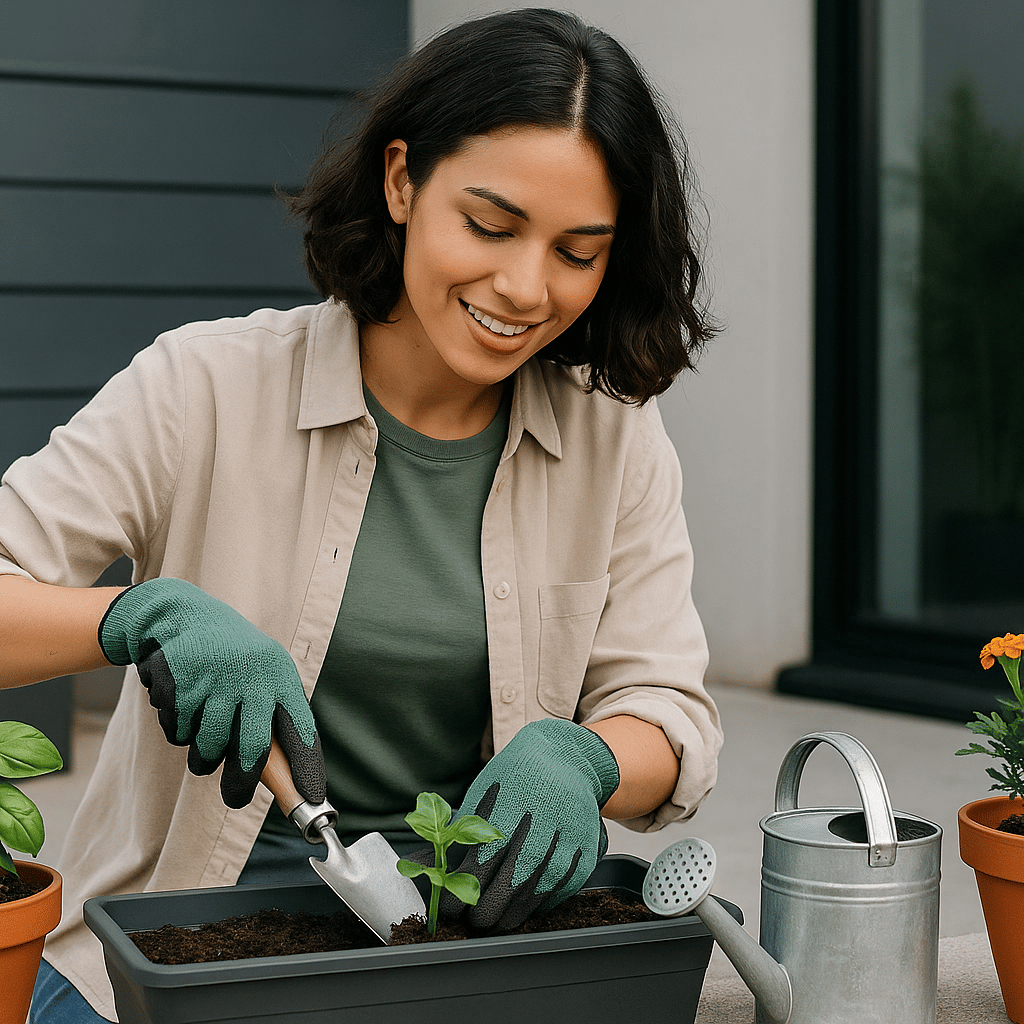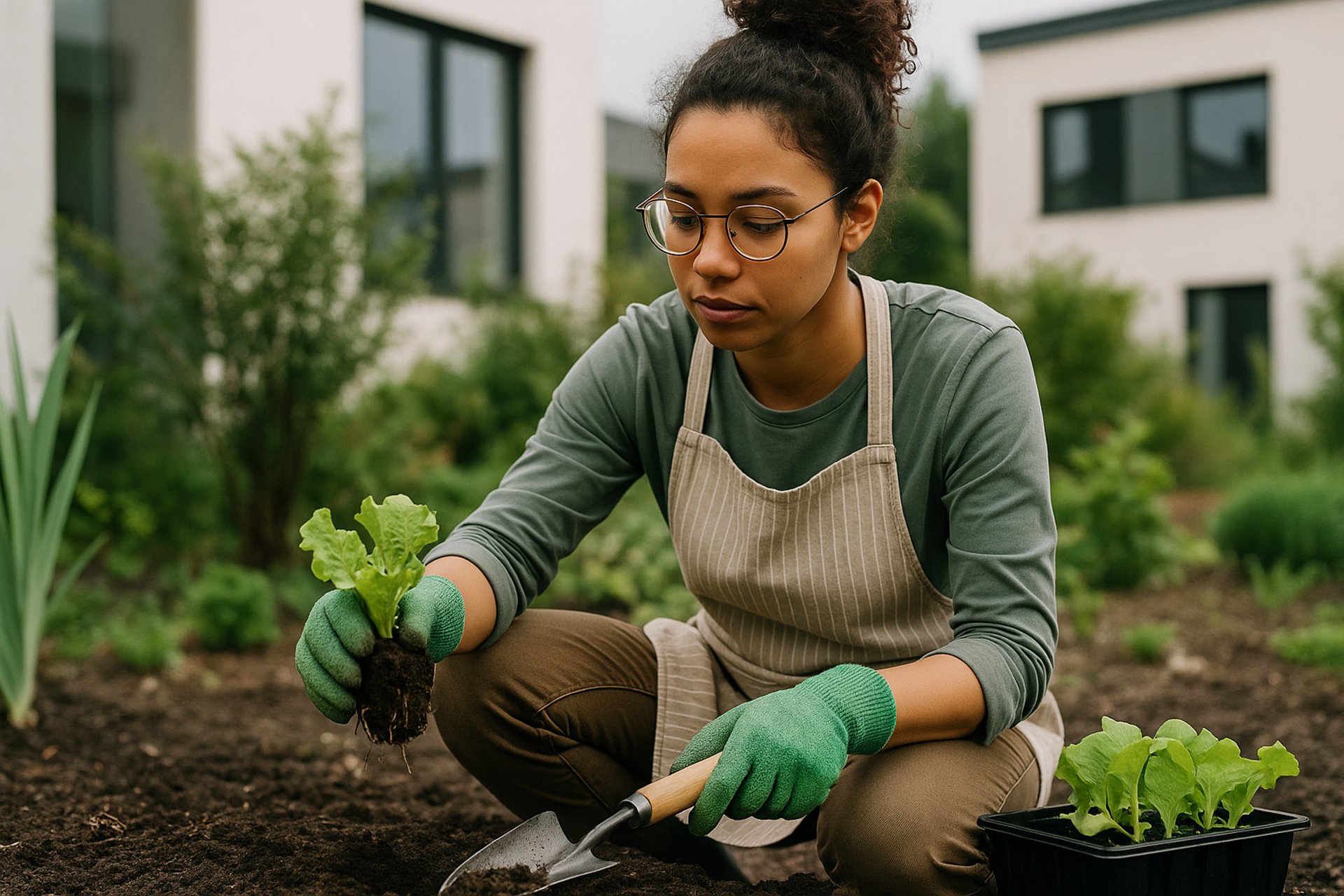Arts and creativity for fulfillment
Cultivating mental well-being through gardening: a holistic and scientific approach
This article explores the many benefits of gardening and growing one’s own vegetables for mental well-being. Through a holistic approach supported by scientific studies, it highlights how gardening can reduce stress, improve mood, strengthen cognitive functions, and foster social connection. Intended for everyone—beginners and enthusiasts alike—this text presents gardening as a true natural and accessible therapy, inviting each of us to cultivate inner balance in harmony with nature.
Dianna dubois
8/22/20253 min read


Gardening: an ancestral practice with proven benefits
In a modern society often marked by stress and sedentary lifestyles, gardening and growing one’s own vegetables emerge as natural and powerful antidotes. For centuries, the bond between humans and the earth has shaped generations—physically as well as mentally. Today, numerous scientific studies confirm the multiple benefits of gardening for mental health (Soga & Gaston, 2017; Van den Berg & Custers, 2011).
1. Stress and anxiety reduction
Studies show that regular gardening helps lower cortisol, the stress hormone, and promotes relaxation (Van den Berg & Custers, 2011; Clatworthy et al., 2013). Contact with nature, fresh air, natural light, and sensory stimulation trigger endorphins, fostering relaxation and emotional well-being.
2. Improved mood and motivation
Gardening stimulates serotonin and dopamine, neurotransmitters linked to happiness and motivation. Planting, watering, and watching growth encourage satisfaction and emotional resilience (Soga & Gaston, 2017; Chalmin-Pui et al., 2021). Research also links regular consumption of fresh vegetables and fruits to lower depressive symptoms and better mental health (Brookie et al., 2018).
3. Mindfulness and active meditation
Gardening anchors us in the present. Every gesture requires attention and observation, fostering mindfulness and a kind of “moving meditation” (Clatworthy et al., 2013).
4. Cognitive stimulation
Gardening engages planning, memory, concentration, and patience. Among older adults, it helps slow cognitive decline, and stimulates creativity and learning (Soga & Gaston, 2017).
5. Social connection and belonging
Community gardening fosters social integration and a sense of belonging, strengthening community ties and self-esteem (Chalmin-Pui et al., 2021).
6. Physical, immune, and ecological benefits
Gardening is a gentle physical activity, beneficial for overall health. Contact with soil exposes us to beneficial bacteria such as Mycobacterium vaccae, known to boost the immune system and reduce anxiety (Lowry et al., 2007).
7. Therapeutic and clinical support
Horticultural therapy is used in many healthcare settings to support individuals with psychological disorders or chronic conditions (Clatworthy et al., 2013).
8. Recovery and disease prevention
Exposure to green spaces and horticultural activities accelerates recovery after surgery or illness (Ulrich, 1984).
9. Education, transmission, and civic participation
Gardens also become spaces for learning, environmental education, and intergenerational transmission. They encourage responsibility and scientific curiosity (Chalmin-Pui et al., 2021).
Tips to fully benefit from gardening
Practice regularly, even in small spaces: a few pots on a balcony are enough.
Join collective workshops or community gardens.
Vary crops and experiment to stimulate curiosity and learning.
Keep direct contact with soil and the environment.
Introduce children and loved ones to the joy of gardening.
Conclusion
Gardening and growing one’s own vegetables are holistic paths to mental, physical, and social well-being. By cultivating the garden, each of us cultivates inner balance, autonomy, and the ability to adapt to today’s complex world.
References
Brookie, K. L., Best, G. I., & Conner, T. S. (2018). Intake of raw fruits and vegetables is associated with better mental health than intake of processed fruits and vegetables. Frontiers in Psychology, 9, 487.
Chalmin-Pui, L. S., Griffiths, G., Roe, J., Heaton, T., & Cameron, R. (2021). How do gardening and gardens affect health and wellbeing? Journal of Public Health, 1–12.
Clatworthy, J., Hinds, J., & Camic, P. M. (2013). Gardening as a mental health intervention: a review. Mental Health Review Journal, 18(4), 214–225.
Lowry, C. A., et al. (2007). Identification of an immune-responsive mesolimbocortical serotonergic system: potential role in regulation of emotional behavior. Neuroscience, 146(2), 756–772.
Soga, M., & Gaston, K. J. (2017). Gardening is beneficial for health: A meta-analysis. Preventive Medicine Reports, 5, 92–99.
Ulrich, R. S. (1984). View through a window may influence recovery from surgery. Science, 224(4647), 420–421.
Van den Berg, A. E., & Custers, M. H. (2011). Gardening promotes neuroendocrine and affective restoration from stress. Journal of Health Psychology, 16(1), 3–11.
Mardès, a house of publishing, culture, and transmission
Mardès is an inclusive and modern house that edits poetry collections, essays, magazines, and works on the art of living. It also creates cultural and artistic events that foster reflection and sharing.
Its mission is twofold: to edit and to transmit — transmitting poetry, thought, and the gestures of daily life that ease existence and enrich sensitivity.
Through its support, several Musarthis contents remain freely available, affirming a generous and elegant vision of culture.
This article is offered freely, with the support of the swiss publishing and cultural house Mardès, and of Marlena’s Home, where refinement and well-being meet.

MUSARTHIS
La Chaux-de-Fonds
CH-2300
Contact
info@musarthis.world


All rights reserved musarthis.world
Made in Switzerland
